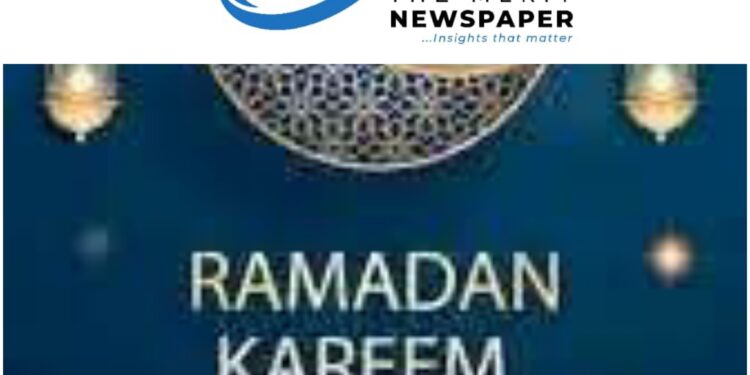
By Ibrahim Kegbegbe
As the holy month of Ramadan begins, millions of Muslims around the world embark on a 29- or 30-day journey of fasting, reflection, and heightened devotion. Ramadan, the ninth month of the Islamic calendar, is a sacred period during which believers abstain from food, drink, and other physical indulgences from dawn to dusk. It is not just a time of self-discipline but also an opportunity for spiritual purification, self-restraint, and acts of kindness.
Fasting in Islam goes beyond merely refraining from eating and drinking. It also includes abstinence from smoking, engaging in sexual relations during fasting hours, gossiping, backbiting, slander, lying, cheating, and all other morally reprehensible acts. The month serves as a reminder for Muslims to cultivate good character, uphold honesty, and strengthen their connection with Allah through prayers, charity, and community service.
The Essence of Ramadan: A Time for Worship and Generosity
Ramadan is fundamentally a month of Ibadah (worship), where fasting is complemented by increased prayers, recitation of the Qur’an, and seeking forgiveness. It is also a period that emphasizes compassion and charity. Muslims are encouraged to share their wealth and food with the less privileged, reinforcing the values of generosity and social responsibility.
The Prophet Muhammad (peace be upon him) was known for his immense generosity, especially during Ramadan. His teachings encourage Muslims to provide for those in need, whether through Zakat (obligatory charity) or Sadaqah (voluntary charity). In this spirit, many Islamic organizations, mosques, and individuals organize food drives and communal meals, ensuring that no one goes hungry during the fasting period.
Health Guidelines for a Nourishing Fast
While fasting carries profound spiritual benefits, it is also essential to observe healthy eating habits. Nutritionists and Islamic scholars advise Muslims to:
1. Stay Hydrated – Drinking adequate water between Iftar (breaking of fast) and Suhoor (pre-dawn meal) is crucial. Dehydration can lead to fatigue, dizziness, and headaches. However, breaking the fast with cold water is discouraged as it may shock the system. Instead, it is recommended to begin with dates and lukewarm water, as practiced by Prophet Muhammad (PBUH).
2. Eat a Balanced Diet – While the temptation to indulge in fried and sugary foods is high, moderation is key. Consuming light, nutrient-rich meals with fruits, vegetables, whole grains, and protein sources helps maintain energy levels throughout the day.
3. Avoid Overeating – It is advised to break the fast gradually rather than consuming large portions at once. Overeating can cause bloating and sluggishness, affecting night prayers such as Taraweeh.
4. Addressing Common Myths – Many Muslims hesitate to fast due to fear of ulcer pain. However, studies suggest that fasting can aid digestion and promote gut health when done correctly. Those with medical conditions should seek professional advice rather than assume fasting is harmful.
A Month of Reflection and Renewal
Ramadan is a deeply personal yet communal experience. It fosters a sense of unity among Muslims worldwide, reminding them of their faith’s core principles: patience, gratitude, and self-discipline. For non-Muslims, it is an opportunity to learn about Islamic traditions and show solidarity with Muslim colleagues, friends, and neighbors.
As the first day of fasting unfolds, Muslims are encouraged to make the most of this sacred month by enhancing their spirituality, performing good deeds, and maintaining a healthy lifestyle. By doing so, they not only fulfill a religious obligation but also contribute to their overall well-being and the betterment of society.
















